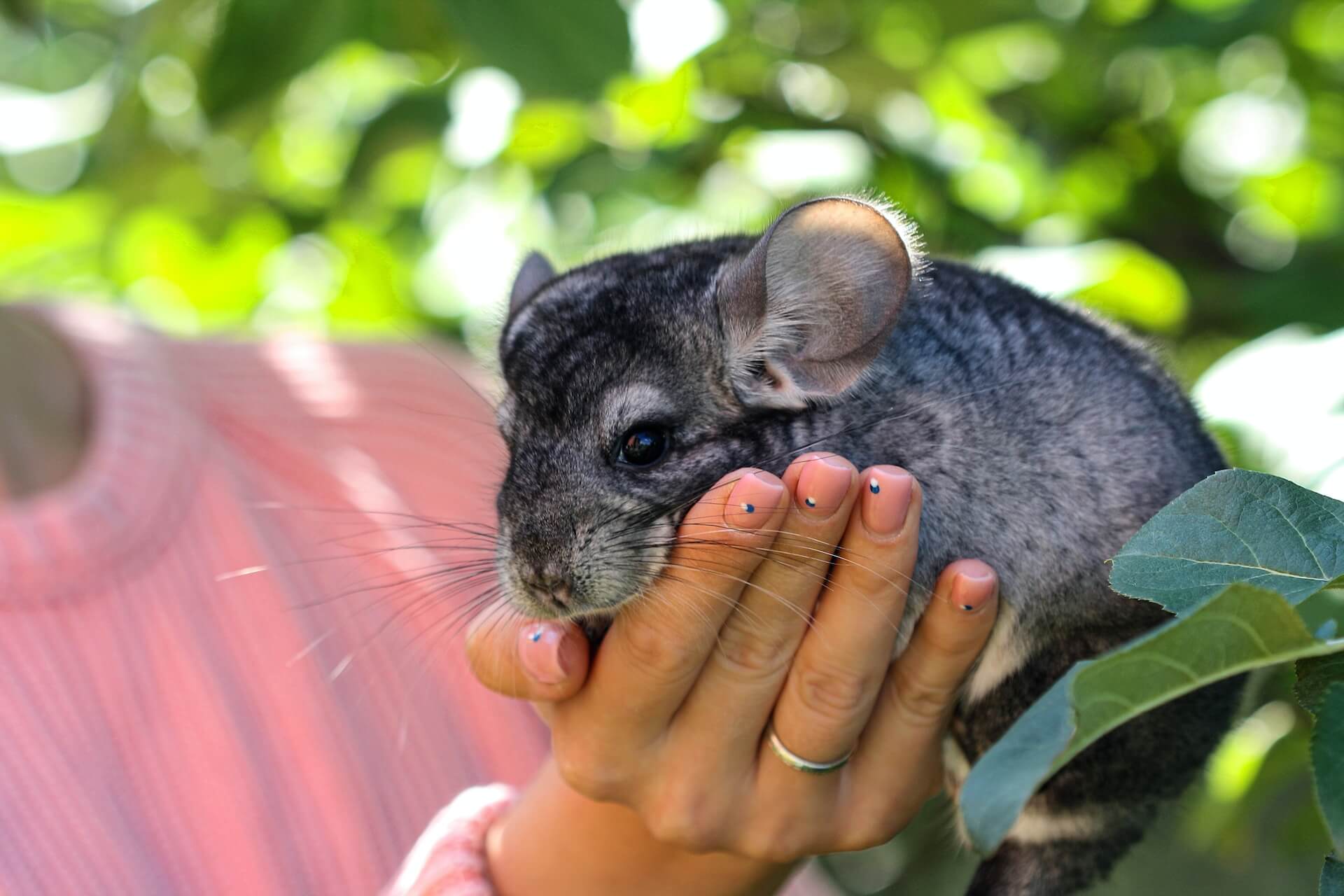Chinchillas are delightful and adorable small mammals known for their soft fur and playful personalities. If you’re considering bringing a chinchilla into your home as a new pet, it’s essential to understand their specific care requirements. This comprehensive guide will help you become a responsible and knowledgeable chinchilla owner.
1. Choosing Your Chinchilla
A. Adoption vs. Purchase
You can either adopt a chinchilla from a rescue organization or purchase one from a reputable breeder. Adoption is a great way to provide a home to a chinchilla in need, but ensure that the chinchilla’s health and background are known.
B. Age and Health
Select a chinchilla that is at least 3 months old, as they are more independent and less fragile. Ensure that the chinchilla appears healthy with bright eyes, clean fur, and no visible signs of illness or injury.
C. Consider Compatibility
If you plan to keep multiple chinchillas, ensure they are compatible and introduce them gradually to avoid aggressive behavior or fighting.
2. Housing and Habitat
A. Cage Selection
Invest in a spacious cage made of metal wire with narrow spacing to prevent escapes. A multi-level cage with platforms, ramps, and shelves provides exercise and stimulation.
B. Cage Placement
Place the cage in a quiet, well-ventilated area away from direct sunlight and drafts. Avoid placing the cage near heating vents or air conditioning units.
C. Substrate
Line the cage with appropriate bedding material, such as kiln-dried pine or aspen shavings, to absorb moisture and odor. Avoid cedar and other aromatic woods, as they can be harmful to chinchillas.
3. Diet and Nutrition
A. Pelleted Diet
Chinchillas require a diet primarily consisting of high-quality chinchilla pellets. Ensure that the pellets are fresh and free from dust or contaminants.
B. Hay
Provide unlimited access to fresh hay, such as timothy hay or orchard grass hay. Hay is essential for dental health and digestive function.
C. Fresh Water
Supply clean, fresh water daily in a sipper bottle or water dish. Check the water supply regularly to ensure it’s not clogged.
4. Grooming and Hygiene
A. Dust Baths
Chinchillas have dense fur that requires regular dust baths to remove excess oils and maintain their coat’s health. Offer a dust bath container at least 2-3 times a week.
B. Dental Care
Chinchillas’ teeth continuously grow, so provide wooden chew toys and safe branches to help keep their teeth trimmed.
C. Nail Trimming
Monitor and trim your chinchilla’s nails regularly to prevent overgrowth. Be cautious not to cut too close to the quick.
5. Socialization and Enrichment
A. Handling
Handle your chinchilla gently and regularly to build trust and socialize them. Start with short sessions and gradually increase the duration.
B. Toys and Activities
Chinchillas are active animals and need mental and physical stimulation. Provide toys, tunnels, and platforms for play and exploration.
C. Interaction
Chinchillas are social animals and benefit from companionship. Consider getting a second chinchilla if possible, but introduce them carefully to prevent aggression.
6. Health and Veterinary Care
A. Regular Check-ups
Schedule annual check-ups with a veterinarian experienced in chinchilla care to monitor your pet’s health and address any concerns promptly.
B. Signs of Illness
Be vigilant for signs of illness, including lethargy, loss of appetite, diarrhea, sneezing, or discharge from the eyes or nose. Seek veterinary attention if you notice any of these symptoms.
7. Safety Measures
A. Chewing Behavior
Chinchillas have a strong chewing instinct, so provide safe chew toys and chinchilla-safe branches to prevent them from chewing on cage bars or harmful objects.
B. Temperature Control
Chinchillas are sensitive to heat and humidity. Keep their environment cool and dry, ideally between 60°F to 70°F (15°C to 24°C).
8. Breeding Considerations
If you plan to breed chinchillas, ensure you have a good understanding of the breeding process and a suitable environment for newborn kits.
9. Enjoying Your Chinchilla
Chinchillas are charming and entertaining pets. Spend quality time with your chinchilla, talking to them, offering treats, and observing their playful behaviors.
Chinchilla care requires dedication, patience, and knowledge to ensure the well-being of your pet. By providing proper housing, nutrition, grooming, socialization, and veterinary care, you can enjoy a rewarding and lasting relationship with your furry friend. Cherish the playful antics and affectionate nature of your chinchilla as you embark on this delightful journey of pet ownership.
Remember that every chinchilla is unique, and as you get to know your pet, you’ll discover their individual quirks and personality traits. With love and care, your chinchilla will thrive in your care and bring joy to your life for years to come.



